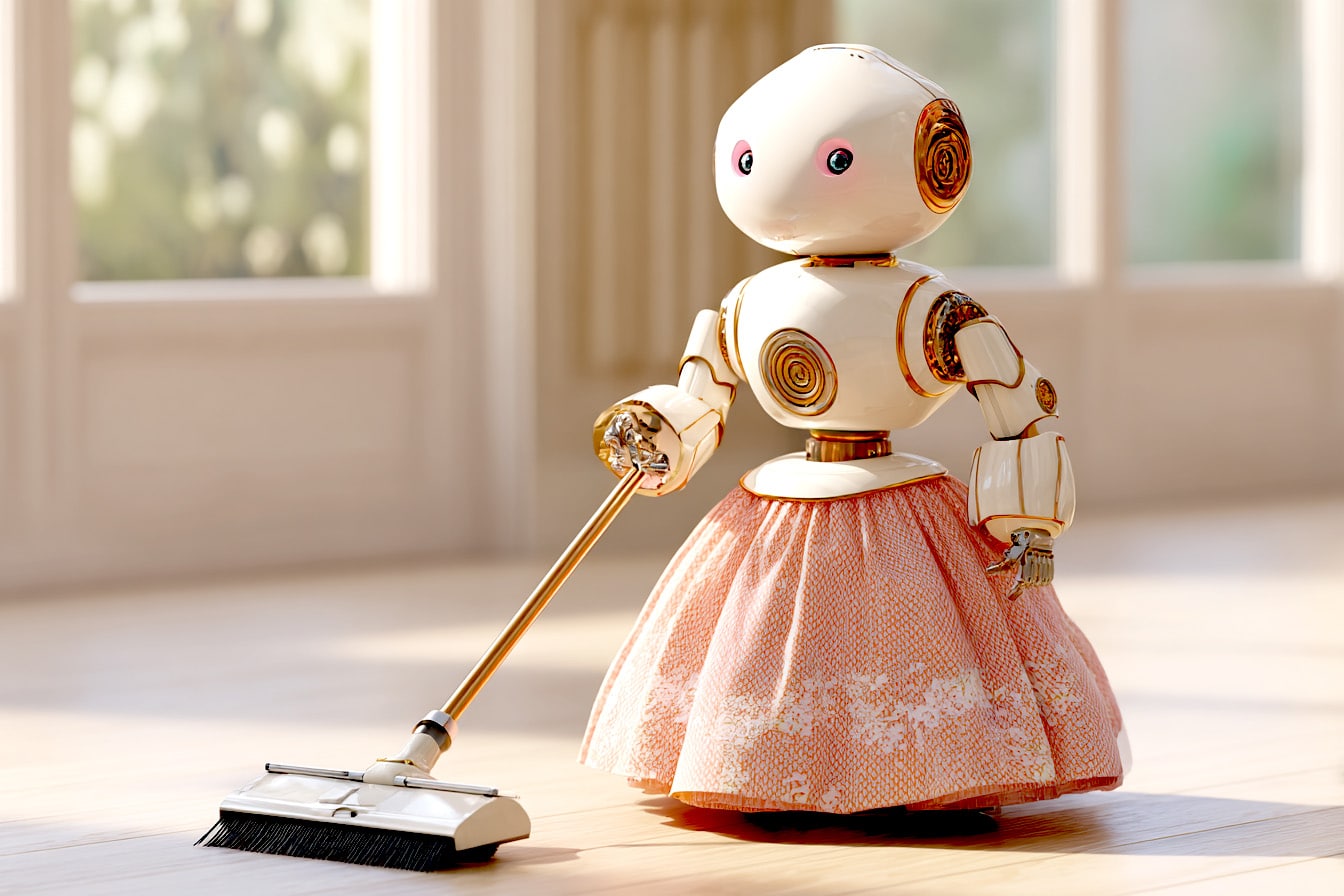Technology isn’t just evolving — it’s sprinting ahead like a caffeinated cheetah. Something new drops every few months, making us wonder if we live in a sci-fi movie. The truth? Many of these innovations aren’t decades away — they’re knocking on our door now. From artificial intelligence that can write books to quantum computers that could crack today’s encryption, the future is arriving faster than most expect.
This isn’t just about gadgets and gizmos. How we work, communicate, travel, and think will transform in the next few years. Knowing what’s coming doesn’t satisfy curiosity — it can help you prepare, adapt, and even profit from these changes.
Let’s dive into 20 upcoming tech shifts that could completely reshape your daily life by 2030.
1. AI Replacing Repetitive Jobs
Artificial intelligence is moving beyond chatbots. AI systems are taking over repetitive, rule-based accounting, customer service, and legal tasks. That means humans can focus on creativity and complex problem-solving, which means some jobs will disappear.
Example: Goldman Sachs estimates 300 million jobs could be affected by AI automation globally.
2. The End of Smartphones as We Know Them
Augmented reality (AR) glasses and wearable displays could replace your phone’s screen. Imagine answering calls, checking directions, and streaming videos through lightweight glasses instead of a handheld device.
Example: Apple’s Vision Pro is an early step toward that reality.
3. AI-Enhanced Healthcare
From AI-driven diagnosis tools to personalized medicine based on your genetic profile, healthcare is shifting toward predictive, preventive care.
Example: Google DeepMind recently built an AI to detect 50 eye diseases from retinal scans.
4. The Rise of Search Alternatives
Traditional keyword-based search may give way to conversational, AI-powered tools that deliver answers instead of links.
Example: Perplexity AI and ChatGPT are already reimagining how people “search” online.
5. Laptops Giving Way to AR Workstations
Why carry a bulky laptop when you can open a virtual workspace in front of your eyes? AR could let you work on multiple “floating” screens anywhere.
6. Fully AI-Generated Films
Filmmakers are already experimenting with AI for scripts, storyboards, and visual effects. By 2030, we may see blockbuster films created entirely by AI, with human oversight for creativity.
7. Everyday Gadgets Straight from Sci-Fi
Holographic displays, foldable screens, and voice-controlled everything could make today’s tech look quaint.
8. Superintelligent AI Predictions
Elon Musk and other tech leaders believe AI could surpass human intelligence within a decade. If true, this could lead to breakthroughs — or serious ethical dilemmas.
9. Quantum Computing Becomes Practical
Once a niche research project, quantum computers may soon handle complex simulations for climate models, drug discovery, and materials science at unimaginable speeds.
10. Self-Driving Cars in Every City
With better AI, improved sensors, and changing laws, autonomous vehicles could become a regular sight in urban traffic.
11. Brain-Computer Interfaces
Companies like Neuralink are developing tech that could let you control devices with your thoughts. That’s great for accessibility, and raises huge privacy questions.
12. Shorter Work Weeks via Automation
If machines can handle more tasks, we may finally see the four-day work week become mainstream.
13. The Universal AI Chip
A new generation of chips could power everything from fridges to satellites, making devices more innovative and more efficient without separate processors for each task.
14. Robot-Built Homes
3D-printing robots could construct houses in days, lowering building costs and addressing housing shortages.
15. Invisible AI in Daily Life
From your email’s spam filter to Netflix recommendations, AI is already everywhere — but in the future, it will be so seamless you won’t even notice it.
16. AI Teachers and Tutors
Education could shift toward AI-driven personalized learning, adapting to each student’s strengths and weaknesses.
17. Thought-Controlled Messaging
Neural input devices might let you “send a text” just by thinking.
18. Self-Paying Cars
With blockchain and IoT integration, your vehicle could automatically pay tolls, parking fees, or even its charging bill.
19. Brain-Like Computers
Neuromorphic computing — chips modeled after the human brain — could lead to machines that “think” more like us.
20. Robot Chefs
From burger-flipping bots to sushi-making machines, automation in the kitchen could change restaurants and home cooking.
Case Study: How Embracing Future Tech Changed One Career Path
In 2023, a mid-level graphic designer, Maya, started experimenting with AI art tools like Midjourney and DALL·E. At first, she feared these tools might replace her. But instead of resisting, she learned to combine her design skills with AI-generated concepts. Within a year, she offered “AI-assisted creative direction” as a service.
Her efficiency doubled — projects that once took a week were finished in two days. She gained international clients who wanted the novelty of AI-driven creativity. By mid-2024, she earned more than double her old salary and spoke at tech conferences about how humans and AI can collaborate instead of compete.
Her story proves that future tech isn’t just about disruption — it’s about opportunity for those willing to adapt.
Key Takeaways
-
Future tech is coming faster than most expect — prepare now.
-
AI will touch every industry, from healthcare to education.
-
Some jobs will disappear, but new roles will emerge for those who adapt.
-
Augmented reality, quantum computing, and brain-computer interfaces will blur the line between physical and digital life.
-
Early adopters can turn disruption into career growth.
Conclusion
The next decade will bring changes that make today’s technology look prehistoric. From AI co-workers to robot-built neighborhoods, the future will blur the lines between the digital and physical worlds in ways we’ve never experienced.
The best way to prepare isn’t to memorize every upcoming gadget — it’s to develop an adaptable mindset, learn new tools, experiment with emerging tech, and pay attention to shifts in your industry.
Because the future isn’t something that happens to us, it’s something we shape right now.
